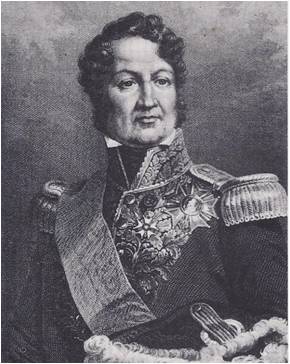DESPITE THE development of democracy in some parts of the world, several of the most important nations established in the nineteenth century went in a different direction and among them was Germany. In the early part of the century, the Germans lived in a number of small states and two large ones Prussia and Austria. France was at least partly responsible for this, for it had long been her policy to keep the Germans weak and divided. Napoleon, too, had followed this policy when they came under his rule, but he had given some of them practical governments and a …
Read More »Tag Archives: Napoleon
Democracy in Latin America 1811-1823
DURING THE years when Napoleon and Spain were at war, Spain’s American colonies began their long fight to win independence from the mother country. Some of the earliest revolts were quickly defeated. The leaders were executed, but their deeds were remembered. In the early 1800’s, the leader of an unsuccessful revolt in Bolivia said, as he faced death: “I die; but the torch which I have lighted no one will be able to extinguish.” Francisco Miranda won fame for his unsuccessful revolt in Venezuela in 1811 and 1812. In Mexico, an old priest named Miguel Hidalgo, who wanted freedom for …
Read More »Democracy in France 1815-1830
AFTER THE fall of Napoleon, Louis XVIII came to the throne of France. Although his powers were limited, by following a middle-of-the-road policy he was able to rule peacefully until his death in 1824. His brother, Charles X, then became king and soon began using his influence to undo as much of the French Revolution as possible. He was able to have laws passed which required the government to pay large sums of money every year to the nobles whose land had been taken from them during the revolution. The Catholic Church was strengthened and once again priests began teaching …
Read More »Democracy in Great Britain 1789-1884
BY 1789, the first year of the French Revolution, England had traveled further along the road that would one day lead to democracy than had any other country in Europe. She had a law-making body called the Parliament which was more powerful than the king. She had a two-party system which gave the voters a choice of ideas as well as a choice of candidates. Members of the conservative party, who were called Tories, were chiefly nobles, wealthy landowners and people who strongly supported the Church of England. The Whigs, as members of the liberal party were called, consisted mainly …
Read More »


